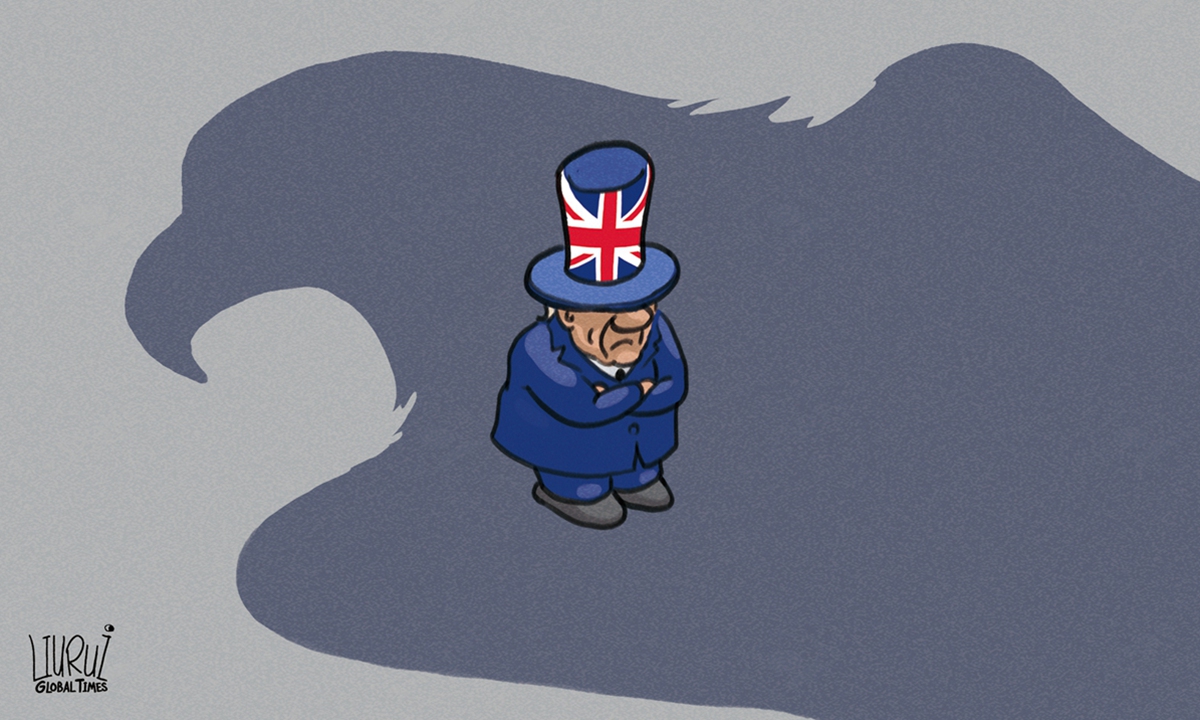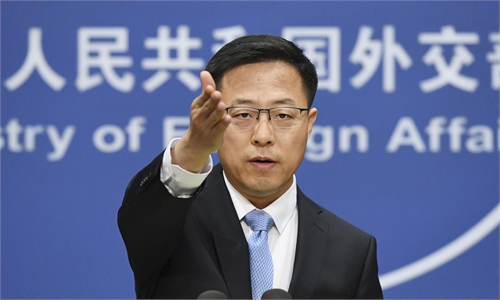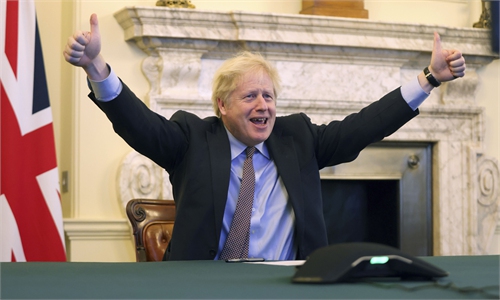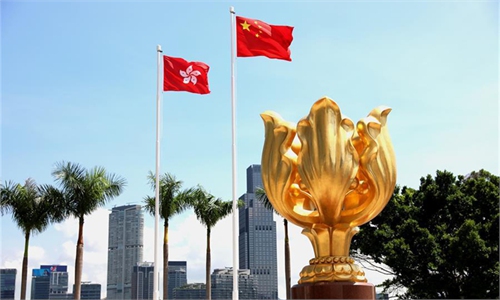
UK US relations Illustration: Liu Rui/GT
London recently has tended to show its increasingly hard-line stances over Beijing. For example, the UK has repeatedly peddled its intent to expand the G7 into the Democratic 10 to contain and isolate China. It is reported the UK's newest aircraft carrier, HMS Queen Elizabeth, is expected to be deployed to the South China Sea in the coming months. This country has also continued to interfere in China's internal affairs regarding the Hong Kong Special Administrative Region and Xinjiang Uygur Autonomous Region.Furthermore, the London-based Spectator magazine recently reported the UK is poised to join the Quadrilateral Security Dialogue (Quad), an informal security grouping of the US, Japan, Australia and India. UK government insiders have not denied this. As the world is undergoing a strategic realignment after the power transfer in the US, whether the UK will participate in the Quad has drawn world-wide attention.
Unlike Paris and Berlin, London has never announced an Indo-Pacific strategy. Yet the fact is that the UK has tended to tilt toward this region.
Just as the UK-based think tank the Policy Exchange said, there are some narratives on Britain's assumed post-Brexit irrelevance. Still regarding itself as "Great Britain," the UK is reluctant to see itself neglected by the international community and wants to play a bigger role in international affairs and revitalize its dominance.
With Brexit, tensions between the UK and the EU have mounted, which would constrain the former's meddling with European affairs. Meanwhile, the UK's post-Brexit era takes place at a time when the rising China in terms of military, economy and diplomacy has become a global focus, Asia has huge potential in economic development, and the Indo-Pacific region has become a geopolitical hotspot. In this context, the UK will not miss the opportunity to prove its presence and display its status as a "great power" by pushing anti-China rhetoric and moves and interfering in Indo-Pacific affairs.
However, Britain no longer has its empire on which the sun never sets. Its might has not been strong enough to achieve its ambitions. Cui Hongjian, director of the Department of European Studies at the China Institute of International Studies told the Global Times on Sunday that if the UK joins the Quad, it may exploit its influence on Australia and India to mediate their divergences and contradictions with the US and Japan, and trigger other European countries' interests and focus on the group. Aside from that, as a force outside the region, London's role would be limited. Not to mention the US and Japan, the UK's economy is projected to be overtaken by India in 2025. If it joins the Quad, the UK's economy will be further dragged down.
John Ross, former director of Economic and Business Policy for the Mayor of London, in 2019 published an article titled "Brexit explains why Britain has played such a provocative role in Hong Kong," on China-based media guancha.cn. He said, "Given the forces which [Prime Minister Boris] Johnson rests on, his policy is of even greater subordination of Britain to the US. His policy might be summarized as… that Britain should act like the equivalent of the 51st state of the US except that it would not have the right to vote in US elections."
The decline of the US is an indisputable fact. Washington is already overwhelmed by the need to bridge domestic divisions and restore its global influence, and it is an unreliable partner to help London recover its strengths. Britain needs to think twice before making any decision to follow the US' lead in dealing with China.



